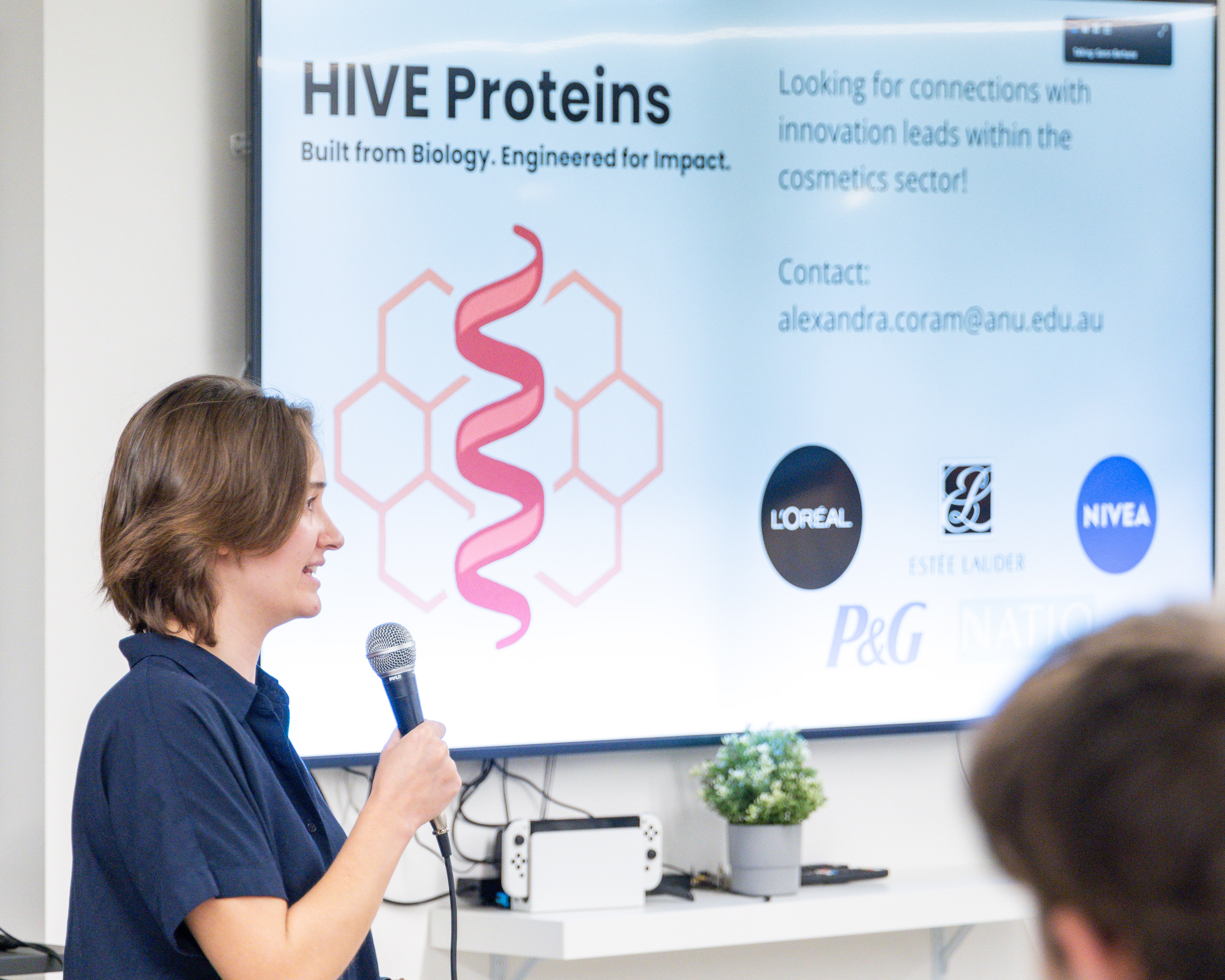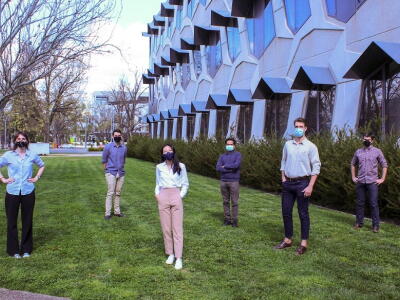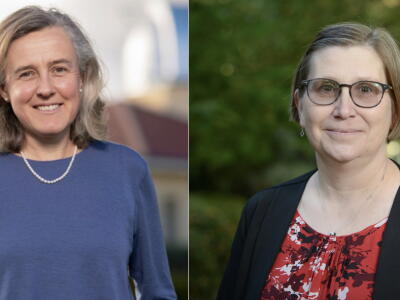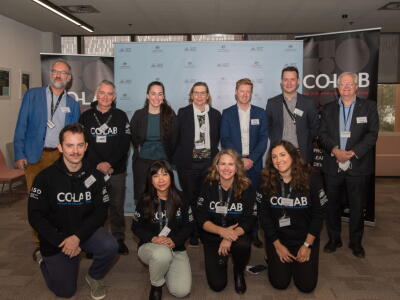ANU PhD start-up wins at Blackbird’s Foundry program
By: Phillis Zeng
Posted on
Breakthrough silk protein technology from a PhD candidate at The Australian National University (ANU) has won double at one of Australia's most competitive startup pre-accelerators.
Alexandra Coram won both First Place and the Audience Choice awards at Blackbird’s Foundry program pitch competition for her start-up Hive Proteins, which creates high-performance, biodegradable fabrics for industrial applications.
As part of her PhD research, Coram, from the ANU Research School of Chemistry, created Hive Proteins to meet growing demand for quality fabrics that safely biodegrade.
“Traditional materials, particularly plastics and synthetic textiles, are not sustainable as they rely on finite resources. Nor are they recyclable or degradable, so they end up in landfill,” she says.
Consumers and governments are increasingly demanding sustainable production and innovative materials that decompose safely with minimal environmental impact, Coram says.
According to Coram, one of the toughest challenges in fabricating these materials is combining various genetic components and reproducing the large, repetitive structures of natural silk proteins.
“The constituent proteins of natural silk are difficult to produce in the lab, and the engineered variants don’t perform as well,” she says.
To address this, Coram successfully used computational protein design methods to engineer artificial silk proteins from scratch.
“These new silk proteins have all the strength of natural silk and can be manufactured at large scale, which previous lab-based methods couldn’t achieve,” she says.
“By combining silk proteins with other materials, we get silk’s unique characteristics – including its strength and biodegradability – at a lower cost.”
The engineered silk materials offer superior strength, durability and specific functionalities compared to natural silk, opening up many more practical applications including industrial fabrics, wearable electronics and wound dressings.

Coram at Blackbird’s Foundry. Photo: supplied
For Coram, bringing this innovation to Blackbird’s Foundry program was transformative, though daunting at first.
“Honestly, I was apprehensive because I was going in solo with minimal start-up experience, while there were many other companies there that had already assembled teams,” she says.
“This was my first exposure to the deep-tech start-up world. But the program turned out to be fantastic and I learned so much.
“The highlight for me was to learn to translate academically interesting research to a commercially viable product, and the opportunity to learn from and connect with leaders in the area.”
Coram says it was unexpected but “incredibly validating” to win both the First Place and Audience Choice prizes. She has since established an expert team to commercialise the technology and raise seed funding later this year.
The team has also been selected to participate in the CBRIN Innovation ACT program in August 2025.
Reflecting on her journey, Coram encourages any researchers working on early-stage ideas and technologies to apply for foundry programs.
“There is so much fabulous research and innovation at ANU. It’s important to get our research out there to tackle some of our most pressing global challenges,” she says.
You may also like
Plastic chomping company takes out top sustainability award
An ANU-backed start up that is turning the tide on the wave of plastic pollution flooding our planet has taken out a top prize in one of Australia's major sustainability awards.
Galactic gains and mighty grains earn ANU stars top accolade
A leading astrophysicist uncovering the deep inner secrets of the Milky Way and a renowned plant scientist tackling one of the greatest challenges facing the agriculture industry have both been newly…
Co-Lab celebrates its Honours Grant recipients
One of the keystone partnerships at ANU, the Co-Lab, has welcomed and celebrated its inaugural cohort of 2022 Co-Lab Honours Grant recipients.


